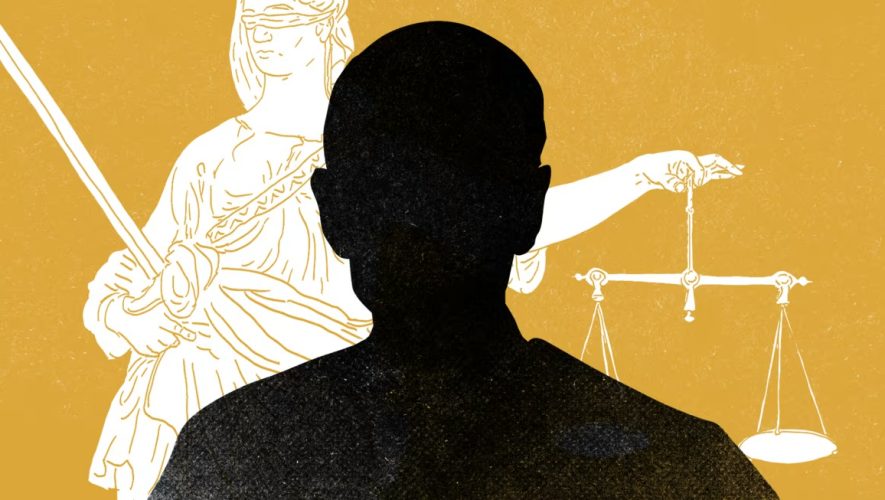Introduction
In March of 2015, following the death of Michael Brown and the subsequent uproar surrounding his death, the United States Department of Justice (DOJ) conducted an extensive investigation into the Ferguson, Missouri Police Department. At the conclusion of their investigation, the DOJ released a 102-page report, citing several instances of racial bias among police and court staff, as well as several instances of civil rights violations. The DOJ concluded this report with a series of policy recommendations for the city, claiming that the problems cited “reflect deeply entrenched practices and priorities that are incompatible with lawful and effective policing and that damage community trust.” Following this investigation, the Ferguson Police Department was placed under a federal consent decree, which is still in place today.
Consent decrees are legal agreements made between individual police departments and the DOJ. These agreements mandate departments to implement specific reforms aimed at correcting patterns of unconstitutional policing, if found. The consent decree program was created as a provision of the sweeping 1994 Crime Bill, a complex and controversial Clinton-era bill that aimed to reduce violent crime in the United States. Under this program, the federal government authorized the DOJ to “conduct ‘pattern-or-practice’ investigations into pervasive misconduct.” Since being given this authority, the DOJ has investigated several major American police departments following accusations of misconduct, with one of the most notable cases of course being in Ferguson, Missouri.
In May 2025, the Trump administration moved to drop several of these investigations, including in cities such as Phoenix, Memphis, and Oklahoma City. It also dismissed federal oversight agreements in Louisville and Minneapolis, cities that arguably are in need of monitoring the most. When questioned about these investigations, Assistant Attorney General Harmeet Dhillon argued that consent decrees “divest local control of policing from communities where it belongs,” instead giving power to bureaucrats who often hold an “anti-police agenda.”
This decision move comes at a time where research has shown that federal consent decrees already require significant restructuring. While different cases have shown us that federal consent decrees can reduce police misconduct in the short term, their long-term success heavily relies on continued federal oversight, community investment in reform, and individual departments’ commitment to change. The dismissal of DOJ investigations and oversight agreements has therefore made an already dire situation much worse.
Additional Investigations
The Ferguson, Missouri Police Department is not the only American police department that has faced DOJ investigation following questions of police wrongdoing. Several other police departments in the United States have faced federal investigation for systemic civil rights violations, such as those in Baltimore, Louisville, and Minneapolis. Communities across the United States, particularly those made up of Black and Latino residents, have been forced to endure these violations. For example, according to the DOJ’s 2015 report, Black residents make up approximately 67% of Ferguson’s population, but they accounted for over 85% of traffic stops, 90% of citations, and 93% of arrests between 2012 and 2014. It is important to note that the Department of Justice found that this and other disparities could not be explained by “any difference in the rate at which people of different races violate the law.” Moreover, in New Orleans, Louisiana, the DOJ heard reports of Latino immigrants requesting police assistance after being victims of crimes, only to be questioned about their immigration status once officers arrived on scene.
In addition to data from Ferguson and New Orleans, Department of Justice investigations have uncovered racial disparities in several other departments. In Chicago, Illinois, the DOJ found that “CPD has tolerated racially discriminatory conduct that not only undermines police legitimacy, but also contributes to the pattern of unreasonable force.” In Louisville, Kentucky, the DOJ found evidence of repeated Fourth Amendment violations, as well as evidence of racial bias: “For years, LMPD has practiced an aggressive style of policing that it deploys selectively, especially against Black people, but also against vulnerable people throughout the city.”
The DOJ reports additionally reprehensible behavior by Louisville officers: “Some officers have videotaped themselves throwing drinks at pedestrians from their cars; insulted people with disabilities; and called Black people ‘monkeys,’ ‘animal,’ and ‘boy.’” These disparities can and have led to increased public mistrust, community trauma, and a long-standing sense of alienation from the justice system. Notably, according to a 2023 Gallup poll of 10,026 American adults, almost 75% of Black Americans reported wanting “major” changes to policing policy. Many of our country’s most marginalized no longer feel that police departments exist to keep their communities safe. They may instead see those involved in our justice system as potential threats.
The aforementioned research has consistently demonstrated that these issues are not isolated incidents but instead symptoms of broad institutional failure that is enabled by weak internal accountability mechanisms and a problematic culture within police departments. In many cases, officers who engage in or witness misconduct do not report it, and when civilians file complaints, they are often dismissed or inadequately addressed. This is reflected in a Baltimore case in which a woman alleged that a Baltimore Police Department supervisor refused to accept a complaint of excessive force, justifying this by telling the woman that she “could not go against her officers.”
In the DOJ’s 2016 investigation into the Baltimore Police Department, officials found several systemic failures in the department’s accountability systems, including evidence of poor internal investigative techniques, minimal review and supervision, and “a persistent failure to discipline officers for misconduct, even in cases of repeated or egregious violations.” This type of culture, one that prioritizes loyalty to the badge over accountability to the public, makes it especially difficult to address systemic misconduct. For a country that prides itself in its commitment to freedom, due process, and equal protection under the law, the persistence of systemic civil rights violations by American police officers exposes a troubling contradiction between the United States’ liberal democratic ideals and its institutional practices.
What Leads to a Consent Decree?
When investigating instances of police misconduct, the Department of Justice takes a holistic approach, engaging in “pattern or practice” investigation. This means that while a single instance of officer misconduct does not on its own establish a pattern, it can still indicate that the department may be engaging in broader unconstitutional practices. During these types of investigations, the DOJ hears from police officers, local officials, and other community members. DOJ officials also “observe officers during shifts, review documents and body-worn camera footage, and evaluate specific incidents relevant to the investigation.” Should there be substantial evidence of a pattern of misconduct within a department, Congress has provided the DOJ with the power to intervene. This is part of the aforementioned 1994 Crime Bill, which, among other reasons, was created to increase federal involvement in crime prevention and accountability measures. This provision seems effective because it allows the federal government to step in when local oversight mechanisms fail. One of the primary tools the DOJ uses to respond to findings of wrongdoing is the federal consent decree.
These decrees mandate reforms to address departmental and officer misconduct. For example, one of the terms of the city of Ferguson’s consent decree was that the department agree to commit to a use-of-force model that would “[provide] officers with the skills and training necessary to make optimal force decisions and resolve situations without the use of force whenever possible.” While some institutional reforms are effective in enacting change, this success is often short-lived. Once federal oversight ends, many police departments regress or fail to sustain the changes they have made. With no one watching, officers and staff may not feel the need to change their behavior, and as a consequence, they may again place their communities in danger.
After analyzing DOJ interventions from 2000 to 2016, author Li Sian Goh of the University of Pennsylvania found that federal investigations into officer misconduct led to a 27% reduction in police killings, ostensibly suggesting that federal intervention is effective in reducing instances of police misconduct. However, Goh also found no significant change in police killings after the implementation of a consent decree unless a court-appointed monitor was also assigned.
After comprehensively reviewing multiple consent decree cases across the nation, researcher Allan Y. Jiao found that federal consent decrees can be effective in improving policing practices. However, this success largely depends on police leadership’s willingness to implement reforms, the strength of institutional oversight, and departments’ commitment to sustaining mandated changes. Without these conditions in place, even well-designed consent decrees can fail to produce sustained change.
Similar research has assessed the effect of consent decree programs on rates of civil rights violation claims against police. Examining Section 1983 litigation––civil lawsuits filed against law enforcement for alleged constitutional violations––researchers measured patterns of police misconduct. After creating a panel dataset of 23 jurisdictions that entered into DOJ consent decrees, the researchers found that these federal interventions were only associated with a modest reduction in civil rights filings over time. In addition to the reduction only being modest, the effect of these interventions was not immediate. It instead developed gradually, and in some cases, the reduction in lawsuits did not continue after DOJ oversight ended. Therefore, while consent decrees can reduce legal claims of civil rights violations by police, the sustainability of this reduction relies on continued federal oversight, institutional commitment, and changes in oversight strategy. Ultimately, when police departments know that they are no longer being supervised by executive agencies, their commitment to institutional change may weaken. Now that several DOJ investigations have been dismissed, it is even more likely that commitments to change will weaken or disappear entirely.
The Future of Federal Oversight
Federal consent decrees have a proven, if imperfect, capacity to address systemic civil rights violations within American police departments. The research shows their limitations clearly: without sustained oversight, strong local leadership, and genuine institutional commitment, reforms often fail to stick. But even with these flaws, consent decrees represent the strongest federal accountability mechanism available to address police injustice.
The Trump administration’s decision to drop DOJ investigations in several American cities and to dismiss oversight agreements in Louisville and Minneapolis does not eliminate the consent decree program entirely, but it does fundamentally weaken it. At a time where cities including Minneapolis have made it abundantly clear that their police officers do not respect the rights of citizens, the processes of investigation and correction must not be limited but instead strengthened.
There must be procedures in place to ensure that individual departments and officers are held accountable to the terms of their consent decree, even when public attention has shifted elsewhere. Police departments must not feel comfortable regressing in the reform process when they know that officials are no longer monitoring them. We already know that strong, enforceable policies surrounding police reform, especially those with independent oversight, can shift police behavior. The challenge is ensuring that federal intervention not only corrects unconstitutional and abusive practices but also encourages long-term accountability and change.



